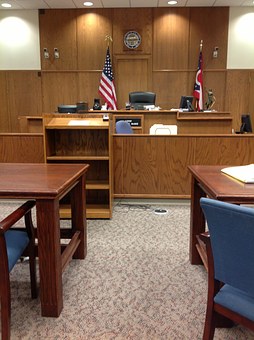Denver Summons for Felony Possible Instead of an Arrest Warrant
I always like to talk about it when our legislature gets something right and makes criminal laws more fair and less burdensome. In one of these rare moments, Colorado passed a new law which makes it easier for a police officer or judge to issue a summons, rather than an arrest warrant, when a person is accused of certain felonies. Let’s take a look at this new law, which is headed in the right direction. What is an At Large Warrant vs. State Warrant?
Arrest Warrant or Summons for a Felony in Arapahoe County Colorado? C.R.S. 16-5-206
Under this new law, located at C.R.S. 16-5-206, police and judges are expressly authorized to issue a summons, rather than an arrest warrant, for certain felonies. Here is the basic text of the law, called Summons in lieu of warrant:
(1) Except in class 1, class 2, and class 3 felonies, level 1 and level 2 drug felonies, and in unclassified felonies punishable by a maximum penalty of more than ten years, if an indictment is returned or an information, felony complaint, or complaint has been filed prior to the arrest of the person named as defendant therein, the court has power to issue a summons commanding the appearance of the defendant in lieu of a warrant for his or her arrest unless a law enforcement officer presents in writing a basis to believe there is a significant risk of flight or that the victim or public safety may be compromised.
(1.5) (a) Except in class 1, class 2, class 3, and class 4 felonies; in crimes described in section 24-4.1-302 (1), C.R.S.; and in unclassified felonies punishable by a maximum penalty of more than ten years, a law enforcement officer may issue a summons commanding the appearance of the defendant in lieu of a warrant for his or her arrest based on probable cause if:
(I) The local district attorney consents to such procedure and has developed and approved criteria for the issuance of such a summons pursuant to this subsection (1.5);
(II) There is a reasonable likelihood that the defendant will appear;
(III) The defendant has had no felony arrests during the preceding five years;
(IV) There is no allegation that the defendant used a deadly weapon as defined in section 18-1-901 (3) (e), C.R.S., in the commission of the crime; and
(V) There are no outstanding warrants for the defendant’s arrest.
When Can a Summons or Warrant be Issued in Douglas County, Colorado?
Under this new law, the district attorney for Douglas County must first approve of the new procedures. That is its first problem. Lawmakers were wimpy on this, but likely agreed to this approval process in order to get more votes. At least it is a start.
Next, judges can issue a summons for certain crimes and police can issue a summons for others. See above for all the details, but it usually depends on the severity of the offense. Also important is whether there are any significant reasons the judge or police officer are aware of circumstances suggesting the defendant will not appear on a summons.
Other requirements are that the defendant not have been arrested on a felony for the last five years, that a deadly weapon was not involved in the crime, and that there are no other warrants outstanding for the defendant.
What is a Summons? What is an Arrest Warrant in Adams County and Jefferson County, Colorado
A summons is a piece of paper ordering a person to come to court. It lists the date to come, the crime someone is facing and a place for the person to sign – promising to appear. An arrest warrant is an order signed by a judge for police to locate, arrest, and bring a person to court. If you have a warrant, you must post a bond to get out of jail, whereas with a summons, only your signature is required and then you are released by police.
As criminal defense attorneys, we rejoice that judges and police now have the option in some felony cases to issue a summons. We hope that in the future they have more freedom to do what’s right. If you are accused of a felony, call the best defense lawyers at 303-731-0719. Together, we can protect your future.
Image courtesy of ohioduidefense and Pixabay



